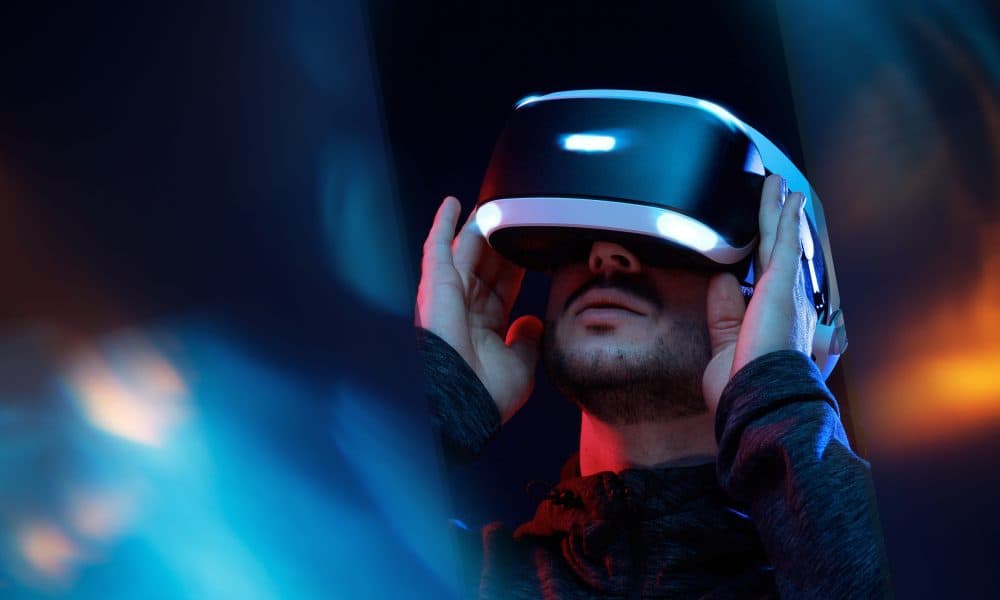
A novel virtual reality (VR) intervention helps cancer patients in palliative care hospices to manage their symptoms and stress better, and may even help them to achieve a last wish, a new clinical trial has found.
Flourishing-Life-of-Wish Virtual Reality Relaxation Therapy (FLOW-VRT-Relaxation) was developed by researchers at the University of Hong Kong.
Designed by the team in 2020, the technology combines standard-of-care relaxation therapy – teaching patients diaphragmatic breathing, to slow their heartbeat, lower blood pressure, and reduce stress – with watching a relaxing 360° panoramic video played on an immersive VR headset.
It aims to promote the psychological state of ‘flourishing’: optimal well-being and fulfillment, where patients experience positive emotions, engage in meaningful activities and have a sense of purpose and accomplishment.
Academic supervisor Dr Antoinette Lee, a health psychologist in the Department of Psychology, said: “We believe that the VR experiences activate psychological mechanisms that promote self-determination, flow experience and restoration, ultimately improving the physical and emotional well-being of patients in palliative care more than does relaxation therapy alone.”
In the study, the researchers recruited 128 volunteers among adult female and male patients with terminal cancer in the palliative care ward of a public hospital in Hong Kong.
Half of the participants were randomly assigned to each of two groups: either FLOW-VRT-Relaxation, including coaching in diaphragmatic breathing by doctorial student Olive Woo, in the intervention group, or such standard-of-care coaching only in the control group.
The eight VR videos had been preselected, based on responses to a survey among eligible patients, as likely to give patients a sense of joy, closure and a meaningful end-of-life experience.
They could even help them to achieve a last wish, for example seeing the cherry blossoms in Japan, even if just in VR.
Each video was 10 minutes long, and was accompanied by soothing music.
Similar music was also played for volunteers in the control group.
Each participant in the intervention group chose their preferred video from the shortlist.
Spontaneous feedback from patients was positive, Woo noted.
She said: “Some participants expressed a sense of awe and wonder as they immerse themselves in virtual environments and engaged in activities they previously thought impossible.
“Others expressed feelings of joy, excitement, and gratitude for being able to fulfill their wishes or engage in activities they have always dreamed of, or a sense of empowerment and confidence through their engagement with VR technology.”
The effectiveness of both treatment groups in promoting wellbeing was rated with the Cantonese version of the Edmonton Symptom Assessment System (CESAS): a questionnaire with known clinical validity that measures nine common symptoms of patients with cancer, such as pain, depression, and anxiety.
A lower CESAS score means greater physical and emotional wellbeing.
CESAS scores dropped following treatment in both groups, but this improvement was significantly greater in the intervention group.
For example, the score on the subscale for physical symptoms fell by 4.1 points (26.6 per cent) in the FLOW-VRT-Relaxation group, compared to 2.1 points (13.0 per cent) in the control arm, while the score on the subscale for emotional symptoms by 2.25 points (47.4 per cent) in the FLOW-VRT-Relaxation arm, compared to 1.0 points (19.6 per cent) in the control group.
The authors concluded that FLOW-VRT-Relaxation is an effective, inexpensive, scalable and personalised therapy for patients in palliative care, at least in the short term.
They plan to follow up the present study by studying the longer-term effects of FLOW-VRT-Relaxation on patients’ wellbeing.
Co-author Dr Alvaro Cassinelli is an associate professor with expertise in augmented and virtual reality.
The researcher said: “Our present study was the first of its kind to rigorously test the efficacy of VR-assisted relaxation among patients under palliative care in a randomised controlled trial with an adequate sample size.
“We look forward to investigating further the advancement of personalised virtual reality and augmented reality environments currently explored in the framework of doctoral work by co-authors Royce Ng and Daniel Eckhoff.”


